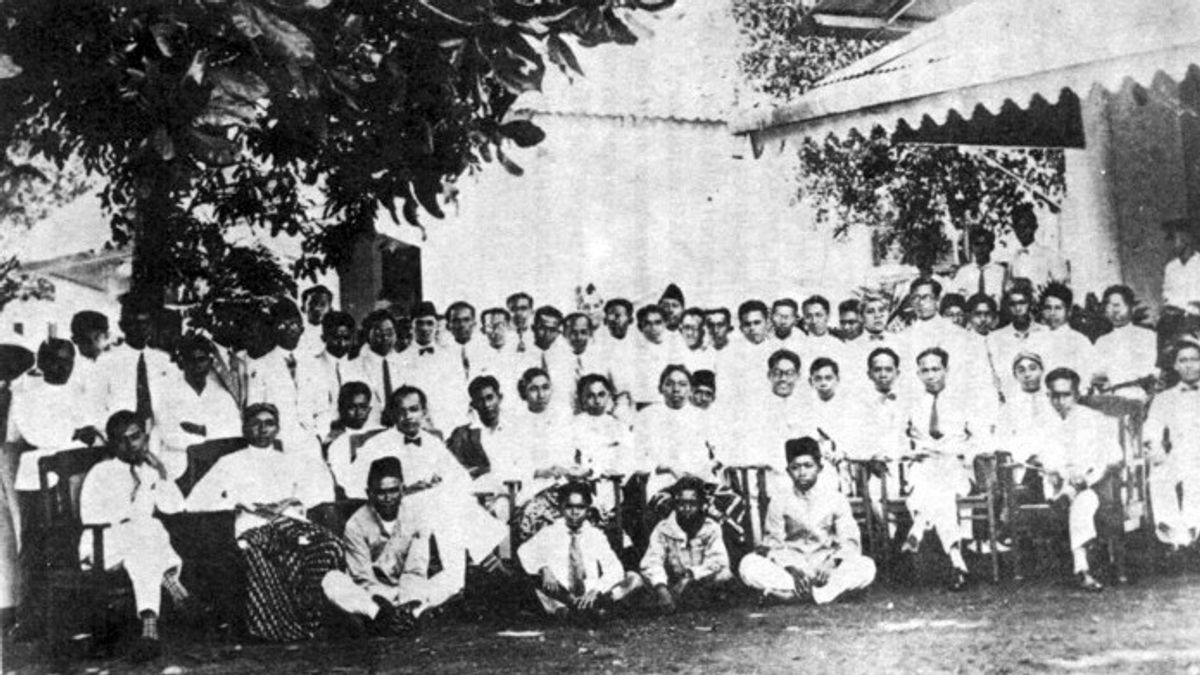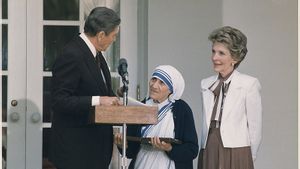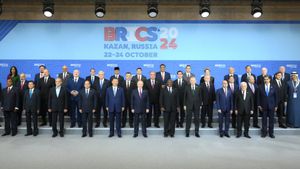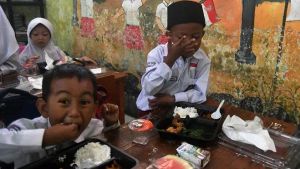JAKARTA - The Second Indonesian Youth Congress, which was held on October 27 and October 28, is almost a century ago or in 1928, almost canceled. The reason is, they had not received permission from the Dutch East Indies Police to hold the event. But thanks to Sunario Sastrowardoyo, a law student who was active in the Indonesian unity movement, the problem was resolved. How is the story?
The success of the First Indonesian Youth Congress in 1926 made the Dutch East Indies Government feel urinated on. This was because the Dutch East Indies Police were caught in the trap of the Chief Executive of the First Indonesian Youth Congress M. Tabrani.
The event was directly supervised by the Chief Commissioner of the Dutch East Indies Police, Visbeen. However, Visbeen was distracted and did not have time to oversee the proceedings of the Congress because he was asked to talk to his assistant, Abdulrahman, who had conspired with Tabrani. Apart from that, Tabrani also deliberately welcomed Visbeen with the beautiful sons and daughters who cradled and distracted the giver of the event.
The congress then took place solemnly until it gave birth to a spirit of national unity. The youth movement, which initially only carried regional interests, is now starting to merge to promote the interests of national unity.
But on the other hand, the success of the First Indonesian Youth Congress was disastrous for the Dutch East Indies Government. They feel cheated. And due to Visbeen's negligence, his position as Chief Commissioner of the Police was removed.
"The Dutch East Indies government immediately recognized Visbeen's stupidity after receiving speeches from M. Tabrani, Paul Pinontoan, and others. Visbeen was removed," said Tabrani as quoted by B. Sularto in From the First Indonesian Youth Congress to Youth Pledge (1986). .
Raising national awarenessThe First Indonesian Youth Congress succeeded in arousing a spirit of unity. As a result, youth movements are increasingly rampant.
In September 1926 Indonesian students in Batavia, founded a student organization. The name of the organization is the Indonesian Student Association (PPPI).
Until 1927, Sugondo Joyopuspito, the leader of the PPPI, wanted to continue the activities that had been initiated by M. Tabrani and his friends. He is eager to hold the Second Indonesian Youth Congress.
Sugondo then contacted prominent Indonesian scholars who had led the Indonesian Association organization in the Netherlands. These figures include Sartono and Sunario Sastrowardoyo.
In their homeland they took part in leading the national movement. Sunario, for example, has succeeded in uniting a number of national organizations and establishing the Indonesian Inter-Scout Brotherhood (PAPI).
The two scholars gave their full support to the idea of Sugondo's group. They even expressed their willingness to become the Legal Advisor for the Sugondo group.

In June 1928 Sugondo and friends succeeded in bringing together eight youth organizations and one student organization for deliberation. The eight organizations include Jong Java, Jong Celeves, Jong Ambon, Jong Sumatranen Bond, Jong Bataks Bond, Jong Islamieten Bond, the Betawi Youth, the Indonesian Youth and the PPPI.
At that time the 2nd Indonesian Youth Congress Committee was formed, chaired by Sugondo. Deputy, Joko Marsaid from Jong Java and Muhammad Yamin as secretaries.
After reaching consensus, it was finally decided that the 2nd Indonesian Youth Congress would be held on 27-28 October 1928. The news of the implementation of the Congress quickly spread to the wider community.
In the Congress, four talking points were agreed. The first is about the unity of Indonesia, second is education, the third is the Indonesian scout movement, and the fourth is about the movement of Indonesian youth at home and abroad. In addition to the national lecture, the Congress Committee also agreed to hold a special event, namely the Indonesian parade.
Almost canceledAfter the concept and schedule are neatly arranged, there is one more thing that needs to be taken care of, namely licensing. The program would not have taken place if it did not get permission from the Dutch East Indies Police.
However, the Dutch Police refused to give permission. The reason is, in the list of Congress events there is an Indonesian parade event. The refusal dealt a blow to the Congress Committee.
"Actually, the police can prohibit the parade without prohibiting the congress. However, apparently they do not want to be embarrassed a second time," said Sugondo.
"Didn't they feel ashamed at the First Indonesian Youth Congress? Because of M. Tabrani's ingenuity, who managed to trick the Police Chief Commissioner. Well, rather than this time they might be fooled again, it's better if they don't give permission to hold this second Congress," he said.
Although they failed to get permission, the committee was reluctant to announce the cancellation of the Congress. The committee conferred with the advisor. Finally they looked for other ways to get permission.
One of Sunario Sastrowardoyo's advisors planned to meet with a Dutch East Indies government official named Kiewiet de Jonge. He was accompanied by his colleague Arnold Mononutu.
Sunario, who later became Indonesia's seventh Foreign Minister, kindly but firmly asked de Jonge to give them permission to hold the Second Indonesian Youth Congress, even though the parade was prohibited. The tense negotiations lasted two days.
After lobbying this official, de Jonge finally gave the order to the Head of the Dutch East Indies Police to issue the permit. The permit finally came out with several conditions, namely that there could be no parade, and youths under the age of 18 were prohibited from participating in the event, prohibited from criticizing the policy and inciting against the power of the Dutch Indies Government.

Finally, the Second Indonesian Youth Congress was held. The Congress finally gave birth to three decision points, the contents of which are as follows:
First: We, the sons and daughters of Indonesia, claim to have one blood, Indonesian soil.
Kedoea: We, the sons and daughters of Indonesia, acknowledge one nation, the Indonesian nation.
Third: We, the sons and daughters of Indonesia, mendjoendjoeng of Persatoean language, Indonesian.
Youth Pledge
The three lines of the verdict of the Indonesian Youth Congress were later known as the Youth Pledge.
The English, Chinese, Japanese, Arabic, and French versions are automatically generated by the AI. So there may still be inaccuracies in translating, please always see Indonesian as our main language. (system supported by DigitalSiber.id)








